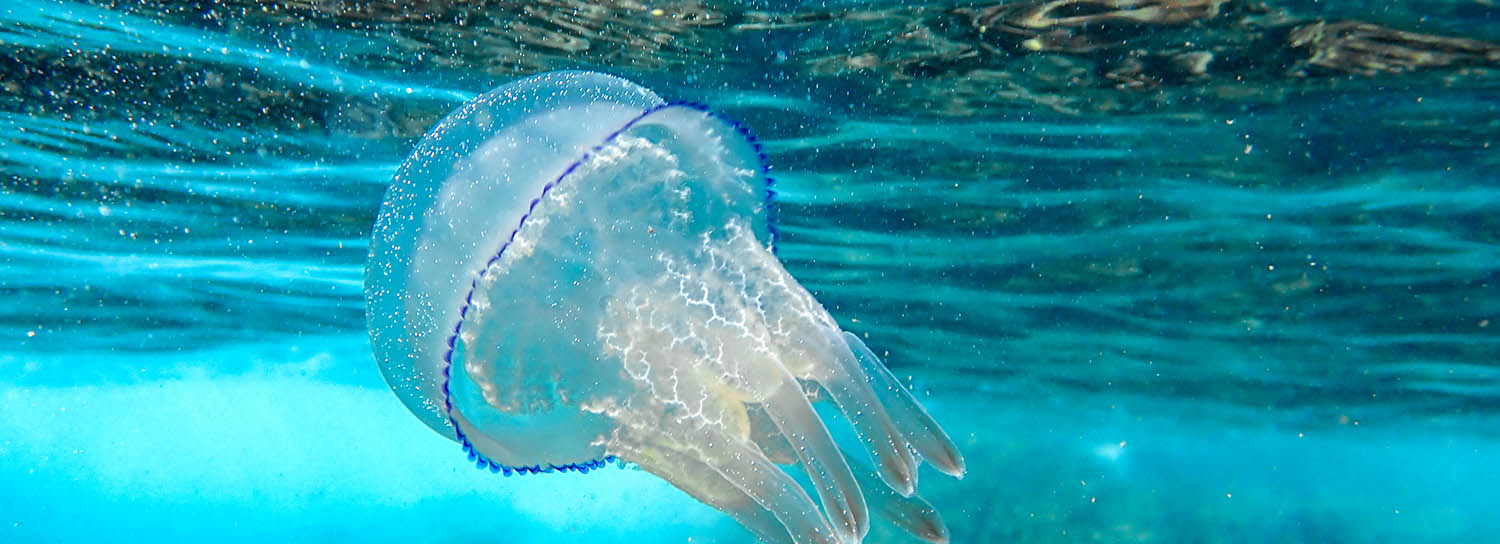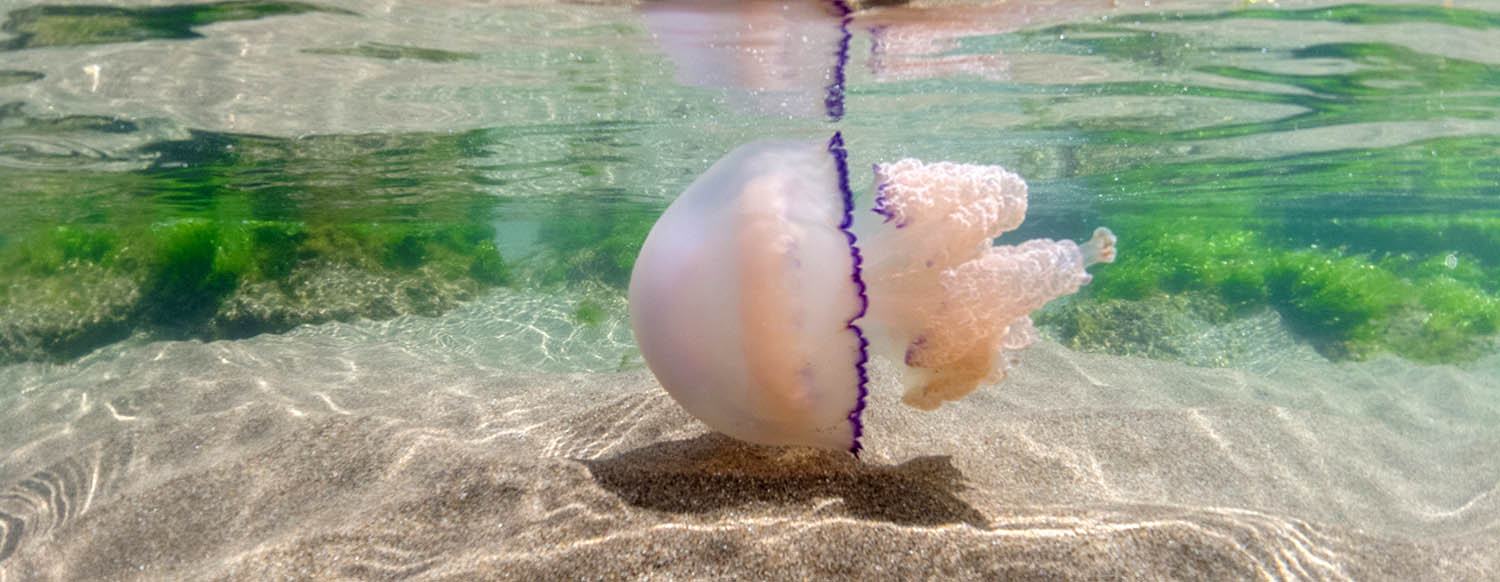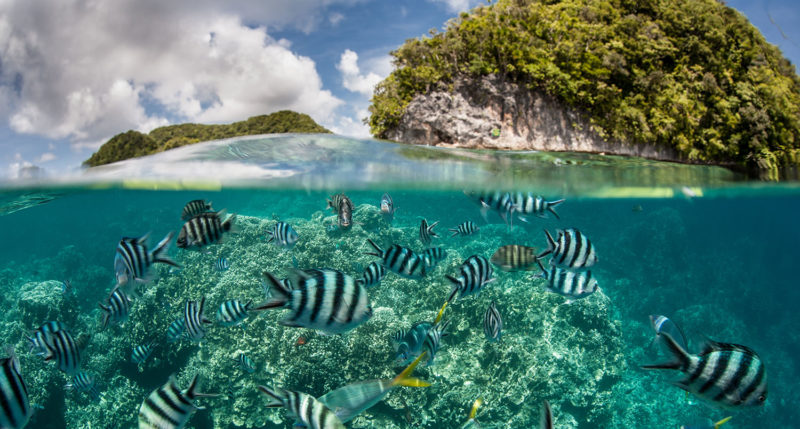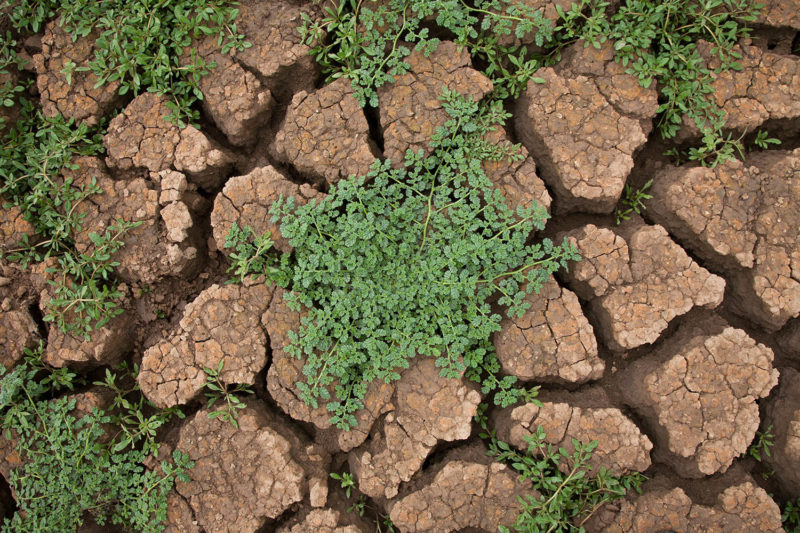

Why are there so many jellyfish?
Year after year, we hear news about the large number of jellyfish that are seen on the Mediterranean coast in general, and on the Catalan coast in particular. What is the reason for the proliferation of this marine animal? We tell you the reason why there are more and more.
To begin with, we must say, as you must already imagine, that the main cause is climate change. Global warming is causing the Mediterranean Sea to rise in temperature 20% faster than other seas and oceans. This phenomenon is called tropicalisation, and even the World Wild Fund for Nature (WWF) NGO has conducted a detailed study on the subject.
The effect of warming on living organisms is amplified by seawater acidification, as increasing alkalinity absorbs more CO₂, and the consequence is the weakening of organisms such as phytoplankton or coral, vital to many species, also greatly affected by the increase and frequency of storms, to the point that, in some areas, they have disappeared.
Jellyfish and their increasing population
Jellyfish are invertebrate animals in the shape of a convex bell from which tentacles emerge, almost transparent, because 95% of their body is water. They belong to the group of Cnidaria, which means that they have stinging cells in their tentacles, which they use for defence or to hunt.
They usually live far from the coast, in the open sea, in large groups, and rise to the surface to feed mainly on plankton and small fish, a food they share with other species that are seeing their presence reduced due to the excess of human activity taking place on the Mare Nostrum.
The consequence of the weakening of the marine flora, the reduction of competition in the struggle to feed, together with the practical disappearance of some of its predators, such as the sea turtle, are other factors that influence the increase in population of jellyfish.
Newcomers to the Mediterranean
The changes that the Mediterranean is experiencing are also caused by the enormous pressure to which it is subjected, such as overfishing, pollution, maritime trade, and coastal development. Specifically, maritime traffic taking place in the Suez Canal and the Strait of Gibraltar, along with mass fishing, have contributed to the arrival of new species of wildlife.
Up to 1,000 invasive species have been located, which have been displacing native ones to the point that the population of molluscs, for example, has been reduced by 90%, which means that the entire Mediterranean ecosystem is being altered.
In the case of jellyfish, they appear on the coast dragged by surface currents, especially in summer with increasing temperature, and can no longer return to the open sea. They are beings that live all over the world and of which there are different species, but on the Mediterranean coasts is where we can see a greater presence of this animal, due to the warmth of its waters.
This issue is a clear example of global ecological imbalance caused by humans: having abundance in food, adequate temperature, and fewer natural enemies, the growth of the jellyfish population is unstoppable, if we fail to reverse the situation.
Do you want to be the first to receive the latest news about 11Onze? Click here to subscribe to our Telegram channel
Leave a Reply
You must be logged in to post a comment.






👏
M’agrada el que Dius😋
Molt interesant, jo no entenccom ja gent que diu que el canvi climatic és una tonteria, i no recicla ni fa res per millorar-lo.
Gràcies per l’apunt Rosa Maria, realment és sorprenent com encara ens falta consciència social en aquest sentit.
Qusn l’home aprendra que ha de tenir cura del seu planeta si ho fes ens aniria a tots bé, instructiu el video i l’article
Tota la raó, Alicia. El canvi ha de començar en nosaltres.